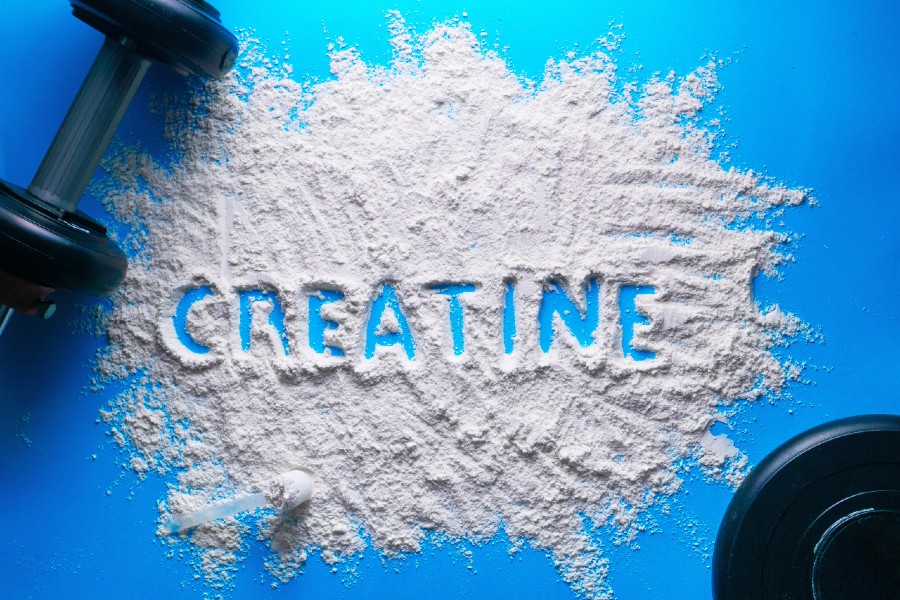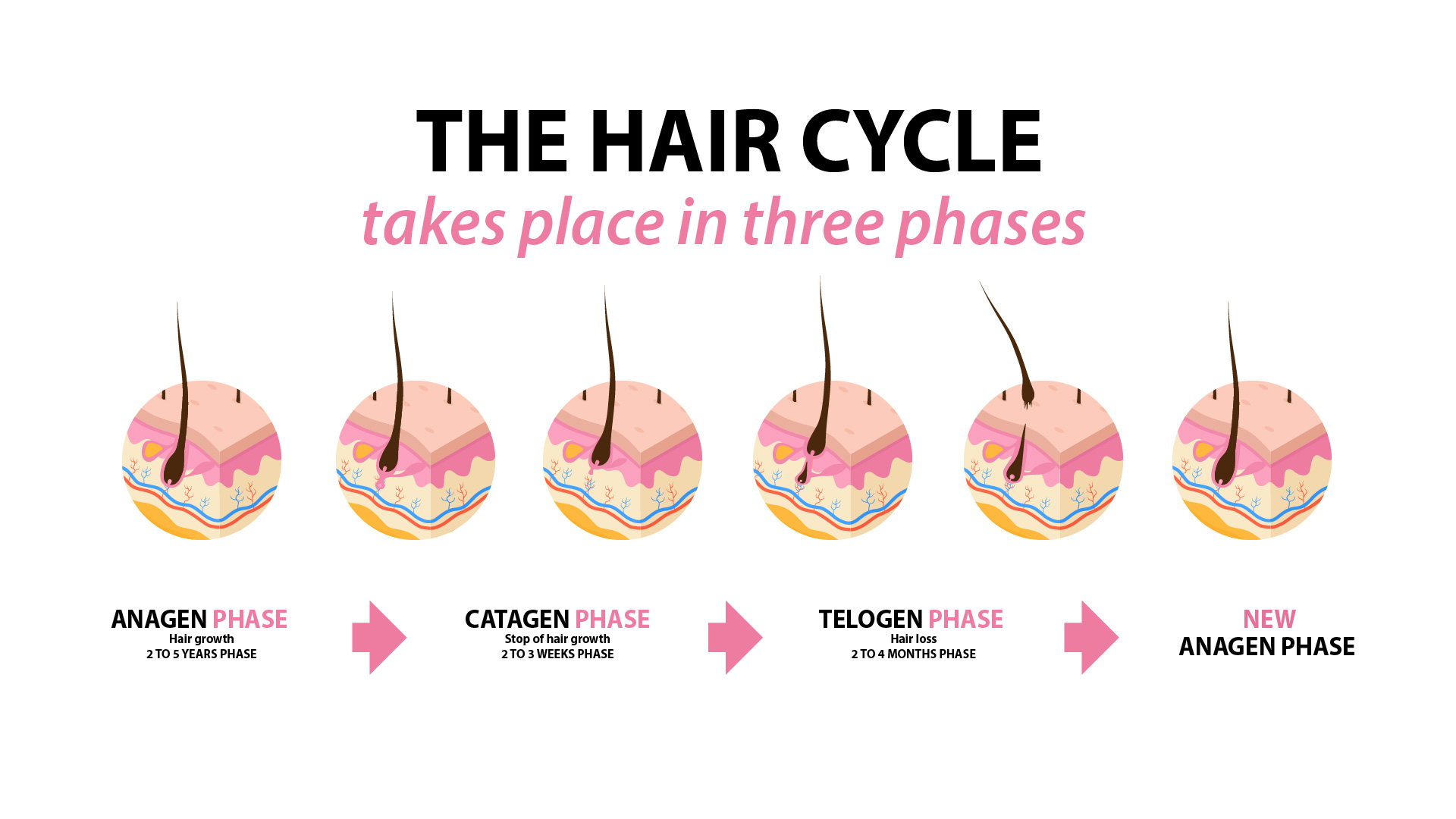2023 Update: Can Creatine Really Lead to Hair Loss?

Introduction
“Creatine is a supplement that has gained immense popularity among fitness enthusiasts and athletes for its potential to enhance physical performance. However, along with its benefits, questions and concerns about its side effects, including its impact on hair health, have also emerged. In this article, we’ll delve into the 2023 update on Does Creatine Cause Hair Loss?. We’ll explore the science behind creatine, its potential effects on hair, and what you can do to maintain healthy hair while using this supplement.”
Understanding Creatine: A Brief Overview

Before we dive into the hair loss debate, let’s start by understanding what creatine is and why it’s so widely used. Creatine is a naturally occurring compound found in small amounts in various foods, but it’s also synthesized by the body, primarily in the liver, kidneys, and pancreas. Its main function is to provide energy to cells, especially muscle cells, during high-intensity, short-duration activities. Now, let’s explore the potential link between Creatine Cause Hair Loss.
Many athletes and fitness enthusiasts turn to creatine supplementation to improve their performance during activities like weightlifting, sprinting, and high-intensity interval training. It’s known to increase muscle mass, strength, and overall exercise capacity, making it a popular choice among those aiming to achieve their fitness goals.
The Creatine and Hair Loss Debate
One of the concerns that have arisen over the years is whether creatine supplementation is linked to hair loss. It’s essential to note that the debate surrounding this issue is ongoing, and scientific evidence is somewhat inconclusive. However, we can explore some of the key points related to this debate.
The Role of Dihydrotestosterone (DHT)

One hypothesis suggests that creatine supplementation may increase the levels of dihydrotestosterone (DHT), a hormone derived from testosterone. Elevated DHT levels have been associated with hair loss, particularly in individuals genetically predisposed to male or female pattern baldness.
Lack of Concrete Evidence

Despite the hypothesis linking creatine to increased DHT levels, there is currently a lack of concrete scientific evidence supporting a direct and substantial correlation between creatine intake and hair loss. Many studies have focused on creatine’s effects on muscle performance and growth, but few have delved into its potential influence on hair health.
Individual Variations

It’s important to recognize that individuals may respond differently to creatine supplementation. While some may experience no noticeable impact on their hair, others might report changes. These variations in response make it challenging to draw definitive conclusions.
Maintaining Hair Health While Using Creatine

If you’re concerned about the potential impact of creatine on your hair health but still want to enjoy its benefits for physical performance, there are several proactive steps you can take:
1. Monitor Your DHT Levels
Consider monitoring your DHT levels through blood tests. This can provide insights into whether creatine supplementation is affecting your hormone balance. Consulting with a healthcare professional is advisable.
2. Stay Hydrated

Creatine can cause the body to retain water, which might affect hair texture temporarily. Ensure you stay well-hydrated to mitigate this effect.
3. Use Hair Care Products
Choose hair care products designed to strengthen and nourish your hair. Look for shampoos and conditioners that promote hair health and contain ingredients like biotin and keratin.
4. Maintain a Balanced Diet

A diet rich in vitamins, minerals, and proteins is essential for overall hair health. Incorporate foods like eggs, fish, nuts, and leafy greens into your diet to support your hair.
read more about Exploring the Link Between Diet and Mental Well-being
5. Consider Alternatives
If you remain concerned about the potential impact of creatine on your hair, consider alternative supplements or consult with a nutritionist to explore other options that align with your fitness goals.
Conclusion
In the ongoing debate over whether creatine can lead to hair loss, the scientific consensus remains somewhat unclear. While there is a hypothesis linking creatine to increased DHT levels, concrete evidence is lacking. Individual responses to creatine vary, making it challenging to draw definitive conclusions.
If you’re using or planning to use creatine supplements and are concerned about its potential impact on your hair, it’s essential to monitor your hair health, stay hydrated, use appropriate hair care products, maintain a balanced diet, and consider consulting with healthcare professionals or nutritionists for personalized guidance.
Ultimately, the decision to use creatine should be based on your fitness goals and individual preferences, considering both its potential benefits and any concerns you may have about its side effects. Staying informed and proactive about your overall health and well-being is the key to making the right choices for your body and your hair in 2023 and beyond.
FAQs
Q1: Does creatine really cause hair loss? A1: The link between creatine supplementation and hair loss is a subject of debate. While some suggest that creatine may increase dihydrotestosterone (DHT) levels, a hormone associated with hair loss, there is no conclusive scientific evidence establishing a direct and significant correlation between creatine intake and hair loss.
Q2: Are there any studies on creatine and hair loss? A2: There have been limited studies on this specific topic, and the existing research primarily focuses on creatine’s effects on muscle performance and growth. More research is needed to draw definitive conclusions regarding its impact on hair health.
Q3: Can creatine affect hair texture? A3: Some individuals may report changes in hair texture while using creatine, but these effects are generally temporary. Creatine can cause the body to retain water, which might affect hair texture temporarily. Staying well-hydrated can help mitigate this effect.
Q4: What should I do if I’m concerned about hair loss while using creatine? A4: If you’re worried about potential hair loss while using creatine, consider monitoring your DHT levels through blood tests. Staying hydrated, using appropriate hair care products, maintaining a balanced diet, and exploring alternative supplements are proactive steps you can take.
Q5: Can I continue using creatine if I’m concerned about hair loss? A5: The decision to continue using creatine should be based on your fitness goals and individual preferences. If you’re concerned about its potential impact on your hair, you can explore alternative supplements or consult with healthcare professionals or nutritionists for personalized guidance.
Q6: Are there ways to maintain hair health while using creatine? A6: Yes, you can take steps to maintain hair health while using creatine. These include monitoring DHT levels, staying hydrated, using hair care products designed for healthy hair, maintaining a balanced diet rich in vitamins and minerals, and considering alternatives if you remain concerned.
Q7: What’s the best way to stay informed about creatine and its effects? A7: To stay informed about creatine and its potential effects, keep up with the latest research, consult reputable sources, and consider discussing your concerns with healthcare professionals or nutritionists. Being proactive about your overall health and well-being is essential.
Q8: Can women experience hair loss from creatine use? A8: While the focus is often on male pattern baldness, women can also experience hair thinning or loss due to elevated DHT levels. Women concerned about hair loss while using creatine can follow similar proactive measures and consult with healthcare professionals.
Q9: Is creatine safe for other aspects of health? A9: Creatine is generally considered safe for most people when used as directed. It has been extensively studied for its effects on physical performance and muscle growth. However, individuals with specific medical conditions should consult with a healthcare professional before using creatine.
Q10: Can creatine provide benefits beyond physical performance? A10: Yes, creatine has been researched for potential benefits beyond physical performance, including cognitive function and certain medical conditions. Its effects vary among individuals, and research in these areas continues to evolve.
Please note that individual responses to creatine can vary, and it’s essential to make informed decisions based on your unique circumstances and goals. If you have specific concerns about hair loss or creatine use, it’s advisable to consult with healthcare professionals or experts in the field for personalized guidance.











 Viesearch - The Human-curated Search Engine
Viesearch - The Human-curated Search Engine

6 Comments